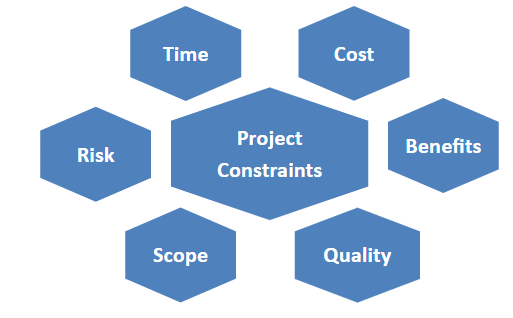
Known Unknowns, Unknown Unknowns, Reserve Analysis in Project Risk Management
Risk is an opportunity or a threat in a project which could occur in future and might impact the project objectives. Project Risk Management is one of the important concept from project management perspective. It is mandatory for the project managers to know how to identify the risks, analyze the risks, plan risk responses and monitor and manage the risks throughout the project life cycle.
In the realm of project management, reserve analysis is a critical technique used to manage uncertainties and potential risks. It involves the identification and quantification of additional time, budget, or resources required to address unforeseen events or risks that may arise during a project. This process helps ensure that a project remains on track and can meet its objectives despite unexpected challenges. Learning becomes more effective as part of our live interactive PMP Certification Training course.
What is a Risk?
Risk is defined as an uncertain future condition or event which might have a positive or negative impact on the project objectives. Positive risks are knowns as Opportunities and negative risks are known as Threats. Risk is also referred to as ‘unknown’ as it is uncertain about the occurrence of the risk and the level of impact it would create on the project objectives and deliverables. Learn the project management concepts at your convenience by taking our PMP Self-paced learning course. PRactice with numerous latest format PMP questions in our PMP Practice Tests.
Risk is everywhere. It could be present in a project as small as 20 days project delivering a small simple product or service to the client and as large as a an 8-year project delivering a large complex product or service to the client or stakeholders. Risk could have an impact on the individual project objectives such as schedule, cost, quality etc. Sometimes it might impact the project as a whole. Understand the Uncertainty Project Performance Domain and all other project performance domains effectively as part of our live online PMP Certification Training course.
Project Constraints:
Managing risks effectively is of paramount for the success of the projects. If a project manager has successfully managed Scope, Schedule, Cost, Quality but you didn’t apply effective skills for managing risks in the project, that might also lead to project failure.
Project success is no more based on three constraints of Scope, Schedule and Cost. It has been transformed to a six-constraint model consisting of Scope, Schedule, Cost, Quality, Risk and Benefits.
Managing these all six constraints is mandatory for successfully completing the project objectives.
Risk Management is one of the specialization area or knowledge areas in Project Management.
Project Reserves:
Project Reserves provide an opportunity to address the risks that might occur in the project life cycle. Reserves could be time and/or money allotted to address the risks related to any aspect of the project. Learn Project reserves effectively as part of our live online PMP Training Course.
Reserve Analysis:
Reserve Analysis is a process followed to plan Contingency reserves and Management Reserves in the project life cycle. Reserve analysis is performed to assess whether the planned contingency and management reserves are enough to manage the risks or is it needed to revise these reserves. Learn Reserve Analysis as part of our Self-paced PMP course.
Some of the risks in the project can be identified by the project team and stakeholders and there can be some risks which cannot be identified and could be emergent risks which might occur at a later date but was never anticipated by the team. As part of PMP Certification Training, Reserve Analysis is covered in detail in Project Risk Management.
- Enhanced Risk Management: By proactively identifying and quantifying risks, project managers can develop more robust risk mitigation strategies.
- Improved Budgeting and Scheduling: Incorporating reserves into the project plan helps ensure that the project remains within budget and on schedule, even when unforeseen events occur.
- Stakeholder Confidence: Demonstrating a thorough understanding of potential risks and having a plan to address them increases stakeholder confidence in the project's success.
Known Unknowns or Identified Risks:
Identified risks are the ones which are identified and documented in the project risk register. Identified risks doesn’t’ mean they have occurred in the project but it means they are anticipated by the team and team has also recorded the risk in the risk artefacts such as risk register and updated the risk responses. Identified risks are also called as ‘Known Risks’ or ‘Known Unknowns’. To understand these confusing terminologies, explore our Self-paced PMP Course. You may also choose to register for our live online PMP Certification Training Course.
E.g. the project manager and team have identified that the equipment no.1 used in the project is old enough and might break down in a couple of weeks. To account for such possible loss or negative risk, the project management team will set aside some reserve in the form of cost in this case. This reserve is known as ‘Contingency Reserve’.
Unknown Unknowns or Unidentified Risks or Emergent Risks:
Unidentified risks are the ones which are not identified by the project team and stakeholders but might occur at a later date. Unidentified risks are not part of risk register because they have never been anticipated by the project manager and stakeholders but it is necessary to plan some reserves in terms on time and/or money to address such risks in the project life cycle. Unidentified risks are also called as ‘Unknown Risks’ or ‘Unknown Unknowns’. As part of our PMP Certification Training, you get learn clearly about Unknown Unknowns and other confusing terms which most of the students find it difficult to follow these terms. The PMP E-learning course is self-paced learning course yet effective in explaining these kind of project management terminologies.
E.g. it was never anticipated by the team in the risk identification sessions that the resources supplier would move out from the contract by terminating the contract early due to some business loss in his purview and since the supplier is terminating the contract mid-way through the project, the project management team has to immediately look for using some reserves to address this problem. These reserves are management reserves. There are various PMP Mock questions well crafted based on these all Project Management concepts.
Contingency Reserves:
Contingency Reserves in a project are the reserves planned and used for managing identified risks or ‘Known Unknowns’. Management Reserves are used for managing unidentified risks or ‘Emergent Risks’ or ‘Unknown Unknowns’.
Project management team conducts risk identification and risk analysis events as per the frequency defined in their project as per the context of the project. Regularly, the various project stakeholders try to monitor whether the existing or planned contingency reserves are enough for managing the ‘Known Unknowns’ or Identified risks and whether the planned management reserves are enough for managing emergent risks or ‘Unknown Risks’ if any, occurs in the project.
Contingency reserves are part of Cost baseline which are in control of Project Manager and team. Project manager and team can utilize Contingency reserves planned as and when the identified risks occur in the project and they do not need to get approval from any other stakeholder for using these funds/ time to account for the ‘Known Risks’. Practice with numerous PMP Practice Questions based on these project managment concepts.
Management Reserves:
Management Reserves are added over and above the cost baseline of the project to obtain the Project budget. Management Reserves are planned, estimated, allocated based on the risk appetite of the stakeholders and organization and various other factors e.g. strategic importance of the project, size of the project, industry it belongs to, complexity of the product or services that the project creates and more. To understand these concepts clearly, join our PMP E-learning course.
For applying management reserves, the project manager needs to get the approval from the management by following the change control procedure. Project Manager needs to raise the change request to utilize management reserves for managing an emergent risk in the project and upon approval from the management, Project Manager and team can utilize the management reserves or funds set aside for addressing such ‘Unknown Unknowns. Understanding these concepts are highly important for cracking PMP Certification Exam in your first attempt.
Reserve analysis is an essential aspect of project management that helps ensure projects are prepared to handle uncertainties. By systematically identifying, assessing, and quantifying risks, project managers can allocate appropriate reserves to maintain project stability and achieve objectives. While there are challenges in accurately estimating and managing reserves, the benefits of enhanced risk management, improved budgeting and scheduling, and increased stakeholder confidence make reserve analysis a valuable tool in the project manager's toolkit.
To gain such insights on different other elements of project management, join our PMP Certification Training which is a live instructor-led batch starting soon.
Our comprehensive training strategy helps the Project Managements aspirants to clear their concepts as part of the training sessions and our high-quality well-crafted training material helps the aspirants to prepare well for the PMP certification exam or CAPM Certification Exam effectively and pass in their first attempt. You may also enquire for your corporate batch training.

About Anita Ankam
Anita Ankam – Expert Project Management Instructor
Anita Ankam is a highly experienced and certified project management instructor, specializing in globally recognized methodologies such as PMP®, PMI-ACP®, DASM®, and DASSM®. With an extensive academic background, including an MBA and MSc, Anita holds multiple industry-leading certifications, including PRINCE2, PRINCE2 Agile Practitioner, CSM, ASM, ITIL, and Six Sigma Black Belt.
As an authorized training instructor, Anita has guided countless professionals in mastering project management frameworks and agile practices. Know more.
Related Posts

Featured Links
Contact us
- PMP® Certification Course |
- CAPM Certification Course |
- PMP Certification Training in Mumbai |
- PMP Certification Training in Pune |
- PMP Certification Training in Hyderabad |
- PMP Certification Training in Delhi |
- PMP Certification Training in Chennai |
- PMP Certification Training Course in Ahmedabad |
- PMP Certification Training Course in Bangalore |
- PMP Certification Training Course in Bhubaneswar |
- PMP Certification Training Course in Chandigarh |
- PMP Certification Training Course in Gandhinagar |
- PMP Certification Training Course in Faridabad |
- PMP Certification Training Course in Dombivli |
- PMP Certification Training Course in Coimbatore |
- PMP Certification Training Course in Ghaziabad |
- PMP Certification Training Course in Gurgaon |
- PMP Certification Training Course in Indore |
- PMP Certification Training Course in Jaipur |
- PMP Certification Training Course in Mysore |
- PMP Certification Training Course in Lucknow |
- PMP Certification Training Course in Kolkata |
- PMP Certification Training Course in Kochi |
- PMP Certification Training Course in Nagpur |
- PMP Certification Training Course in Navi Mumbai |
- PMP Certification Training Course in Patna |
- PMP Certification Training Course in Pimpri |
- PMP Certification Training Course in Vadodara |
- PMP Certification Training Course in Trivandrum |
- PMP Certification Training Course in Thane |
- PMP Certification Training Course in Surat |
- PMP Certification Training Course in Noida |
- PMP Certification Training Course in Visakhapatnam |
- PMP® Certification Training Course in Doha |
- PMP Certification Training in New York |
- PMP Certification Training Course in Chicago |
- PMP Certification Training in Austin |
- PMP Certification Training in Minneapolis |
- PMP Certification Training in Atlanta |
- PMP Certification Training in Dallas |
- PMP Certification Training in San Diego |
- CAPM Certification Training in Mumbai |
- CAPM Certification Training in Bangalore |
- CAPM Certification Training in Hyderabad |
- CAPM Certification Training in Delhi |
- CAPM Certification Training in Pune |
- CAPM Certification Training in Chennai |
- CAPM certification Training in Kolkata |
- CAPM certification Training in Gurgaon |
- CAPM certification Training in Noida |
- CAPM Certification Training in Ahmedabad |
- PMI Certified Professional in Managing AI (PMI-CPMAI)™ |
- PMI-RMP - PMI Risk Management Professional |
- PMI-PMOCP - PMI® Project Management Office Certified Professional
- AZ-900: Microsoft Azure Fundamentals |
- AZ-104: Microsoft Azure Administrator |
- AZ-204: Developing Solutions for Microsoft Azure |
- AZ-305: Designing Microsoft Azure Infrastructure Solutions |
- AZ-400: Designing and Implementing Microsoft DevOps Solutions |
- AZ-500: Microsoft Azure Security Technologies |
- AI-900: Microsoft Azure AI Fundamentals |
- DP-900: Microsoft Azure Data Fundamentals |
- CLF-C02: AWS Certified Cloud Practitioner |
- GCP-FC: Cloud Digital Leader |
- GCP-ACE: Associate Cloud Engineer |
- GCP-PCA: Professional Cloud Architect |
- GCP-PCD: Professional Cloud Developer |
- GCP-PCE: Professional Cloud DevOps Engineer |
- GCP-PDE: Professional Data Engineer |
- GCP-PCNE: Professional Cloud Network Engineer |
- GCP-PCSE: Professional Cloud Security Engineer |
- GCP-ML: Professional Machine Learning Engineer |
- GCP-PBA: Professional Business Intelligence Analyst |
- DP-100: Designing and Implementing a Data Science Solution on Azure |
- DP-203: Data Engineering on Microsoft Azure
- PMP® is a registered mark of the Project Management Institute, Inc.
- CAPM® is a registered mark of the Project Management Institute, Inc.
- PMI-ACP® is a registered mark of the Project Management Institute, Inc.
- Certified ScrumMaster® (CSM) ia a registered trademark of SCRUM ALLIANCE®
- While we strive to ensure that all prices listed on our website are accurate, we reserve the right to modify them at any time without prior notice.
Copyright © Certifyera Consulting Services. All Rights Reserved | Designed and Developed by WebAnaya







